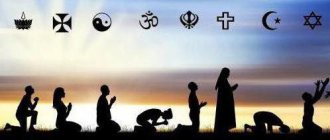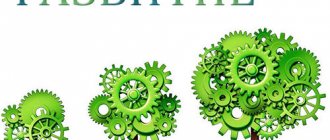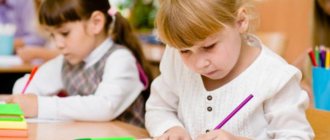The modern educational system increasingly highlights the need to educate a new type of personality. Many programs of specialized scientific organizations are devoted to this aspect. Spiritual and moral education within the framework of the Federal State Educational Standard presupposes pedagogical support for the formation of a highly moral, responsible young citizen , endowed with initiative, and competent.
The spiritual and moral values that society tries to instill in its people are conditionally divided into three groups:
- family, promote caring, caring relationships, love and loyalty towards their loved ones, guardianship of younger ones, respect for elders;
- cultural, based on folklore, national traditions, preaching beauty and harmony;
- patriotic, developing in children a love for the Motherland, a desire to serve it, and a respectful attitude towards law and order.
Spiritual and moral education, its modern problems
Social and moral education lays down the basic characteristics of the individual, which later make themselves felt, manifesting themselves in behavior and activity. Developed moral qualities are realized through a respectful attitude towards the values of society and the desire to be useful. A moral person adheres to certain boundaries and goals.
Today, the younger generation is surrounded by many positive and negative influences. The media and various environmental phenomena have a strong impact. The still fragile intellect, young feelings, and unformed sphere of morality are impressed by such basic “values” of modernity as the desire for profit, the desire to endlessly consume and have fun. Following them destroys the country and fragile souls.
Parents are too busy, they rely entirely on the school, but the school has withdrawn from education and is only engaged in teaching. An educational institution should not only teach, but also educate people . Literature and national history should become the basis for development. It happens that teachers of non-humanitarian subjects, chemistry or physics, become moral ideals for their students. A teacher who behaves in accordance with the code that he declares becomes an older friend and a model for growing children.
Moral education
Ideas, principles, laws, norms and rules of behavior in society are components of moral education. In short, it is based on the development of the following qualities:
- feelings of kindness;
- helping one's neighbor;
- feelings of sympathy;
- the need to follow human morality.
To do this, you need to accustom the child to moral standards, form his positive moral experience, direct his behavior, feelings and consciousness towards the realization of moral values and form the moral character of the individual.
In this case, a child, teenager or adult is the object of moral education, and the family, school and other public organizations influence him. But conscious self-education is also possible, when a person himself forms activities aimed at improving moral qualities and the formation of habits and behavior in accordance with the ideals accepted in society. In this case, techniques such as self-esteem, self-order, self-hypnosis, self-correction, self-regulation, self-approval and self-punishment are used.
The concept of spiritual and moral education of Russian schoolchildren
In Russia, the Education Development Strategy was recently approved, which is designed until 2025. The standard focuses on solving a number of problems, one of the fundamental principles of which is a holistic educational process based on spiritual, moral, sociocultural rules and norms.
?
The main goal of the stated concept is to determine the principles, ways of development and education of a highly moral personality. According to it, the activities of preschool educational institutions and schools should have as their goal the formation of a patriot, a conscientious citizen.
The concept details:
- The main tasks of the educational process.
- Vectors of pedagogical activity.
- System for constructing educational activities.
- Forms and methods applicable in the process of working on spiritual and moral development.
The document indicates the need for a whole range of measures that need to be implemented in class and outside of school hours, involving children in a variety of extracurricular activities. This work is not designed exclusively for schools; teachers need to be closely connected with parents and public communities.
Spiritual and moral education of preschool children
Basic national values
Goals and objectives
The scale of the goals of spiritual and moral education, declared one of the key directions of state policy, is impressive. Ultimately, this is the education of a responsible, proactive, competent citizen who adheres to traditional moral, social, and family values.
You might be interested in:Renaissance Florence Architecture
The further development of the country largely depends on the success of such education. The higher the level of a citizen’s acceptance of universal and national values and the willingness to follow them in professional, personal, and social life, the greater the prospects for modernization of the country and society. Spiritual values in education are fully correlated with these objectives.
Spiritual and moral education of preschool children within the framework of the Federal State Educational Standard
Early age is an important period when a child learns the world of social values. At this time, the foundations of moral attitudes are laid, which subsequently determine the adult’s attitude towards the world and its manifestations. A little person develops an idea of himself, his immediate and wider surroundings. It's time to introduce your child to moral standards through varied and interesting activities.
?
One of the important roles in the development of children's moral guidelines is played by the study of their native language. The Federal State Educational Standard takes into account the principle of ethnocultural development; the educational program is implemented in the native language.
It is in folklore that special national features are preserved. Fairy tales, proverbs and sayings very subtly notice various everyday situations and emphasize the positive and negative aspects of human character. There is a full set of recommendations here, where the popular idea of a well-mannered person is clearly manifested, which contributes to correct spiritual and moral development.
National holidays, which are held in preschool educational institutions, are a vibrant form of recreation for educators, parents and children, uniting them through joint actions and experiences.
According to many respected clergy, the “values” around which the government is trying to unite the people turn into abstract concepts if they are divorced from Christian ethics. Talking about goodness, conscience, moral duty is not bad. But it is impossible to talk about the construction of spiritual and moral attitudes as a result of the cultural development of Russia without mentioning Christianity. It became the main formative factor of what is now called Russian culture.
According to the Federal State Educational Standard, the main tasks of raising high spirituality and morality in preschool children are:
- developing a good attitude towards people and nature;
- awakening a sense of belonging to the people's heritage;
- awareness of one’s national characteristics, instilling a sense of respect for one’s nation and representatives of other nationalities;
- the formation of benevolent collective connections, sympathy, friendliness, empathy for comrades;
- instilling respect for work;
- creating the foundations of patriotism and citizenship.
Thematic seminar:
Legal education
Related to political education is legal education, which is understood as the purposeful activity of government agencies and society, influencing the legal consciousness, culture and behavior of people to follow the law and its norms.
Thanks to legal education, citizens develop confidence and independence in the legal sphere. This stimulates the legal activity of individual citizens, which involves conscious, proactive, social, moral and responsible behavior.
Legal education includes the following elements:
- legal experience of the society;
- pedagogical and psychological methods of influencing citizens (personal example, persuasion, encouragement, punishment, coercion);
- forms of education - the external and behavioral aspects of the relationship between the state and the population.
Legal education is carried out with the participation of schools, universities, the media, legal education and self-education.
Spiritual and moral education of schoolchildren
Both under the traditional approach and within the framework of modern Federal State Educational Standards, the teacher has always been tasked with realizing not only educational and developmental goals, but also achieving an educational effect. The concept puts forward the same principle. Lessons with a humanitarian and aesthetic orientation have great potential for spiritual and moral development.
Educational tasks can be implemented within any academic discipline when the following forms of work are used during classes:
- the best works of artistic culture are taken as a model;
- the guys get acquainted with the heroic pages of the history of the state;
- watching feature films and documentaries is definitely discussed;
- Role-playing and business games are held;
- The teacher organizes communication in a discussion form, involves students in solving practical problems, creating problematic situations.
Moral education of the individual
When organizing extracurricular activities, teachers can plan the following activities:
- public collective holidays:
- family creative meetings;
- interactive quests, talk shows;
- intellectual quizzes, debates;
- work of circles, sections, clubs of interest.
Basic moral guidelines
According to the accepted concept, the main sources of morality for children and youth are:
- love for the homeland and readiness to serve the fatherland;
- solidarity;
- family relationships;
- citizenship;
- nature;
- scientific knowledge;
- art and aesthetic development;
- cultural ideas and religious ideals;
- creation and creativity;
- diversity of peoples and cultures.
In the process of upbringing and training, the development of the child’s personal, social and family culture occurs. At the same time, the educational environment of the school should be built on values common to all citizens of the country.
Successive relationships between family and school
One of the characteristic features of spiritual and moral education should be considered the principle of continuity , cooperation between the educational institution and the family. The development of a child begins in the family; school does not replace this process, but enhances it.
Teachers need to study family educational potential, and, if necessary, promote the civic education of not only children, but also their parents. To achieve this, non-standard forms of parent meetings are used, creative homework is used, parents are involved in school events, and involved in governing bodies.
Under conditions where the educational potential of the family is limited, insufficient work of the school can lead to the fact that the child will be under the influence of informal youth groups, his moral character will be heavily pressured by the information space that is far from perfect, which threatens the loss of identity, the moral bankruptcy of the individual .
Religious education
When a person hears the concept of “spiritual development,” the first thing he thinks about is religion. This is natural, since from childhood a person is instilled with the dogma that the spirit is God’s creation. And religious education is completely based on the scriptures. Despite differences in history, forms of worship, traditions and customs, all three monotheistic religions preach the same thing - the principle of monotheism and following God's word.
Religious spiritual development begins with the personal example of parents - if adults follow religious dogmas, then the child will follow their example. But sometimes this is not enough for a child, and he demands an explanation. Then you can tell him that this or that action is permitted or prohibited by God, and He rewards for good deeds pleasing to Him, and He punishes for bad deeds. In addition to explanations, the following means of religious education will help:
- joint reading and discussion of religious literature;
- visiting places of worship;
- observing fasting and holy days;
- celebration of religious holidays.
If a child goes to school, then regular and religious schools come to the aid of parents. In the regular school they teach the subject “Fundamentals of Religious Cultures and Secular Ethics,” which is divided into 6 areas:
- foundations of world religions;
- secular ethics;
- Orthodoxy;
- Judaism;
- Islam;
- Buddhism.
The main feature of religious education is that parents can choose for themselves in which direction to raise their child, since the course was developed by a group of scientists of different faiths.
In religious studies, in addition to the basics, you can study the Holy Scriptures and get to know your religion better.
Cultivating a sense of beauty
With the words “spiritual development,” along with religion, art also evokes a clear association. The formation process can be divided into 4 stages:
- impression;
- sensory-emotional experience;
- knowledge;
- grade.
These same criteria constitute the main content of the feeling of beauty.
Experiences can be gained through reading fiction, watching films, listening to concerts, visiting exhibitions and museums. Art consists not only of beauty, but of other categories of aesthetics - ugliness, sublimity, baseness, tragedy and comedy. A comprehensive perception of all categories of aesthetics allows us to form a sense of beauty.
After viewing, it is important to comment on what you saw, not only from the position of “like or dislike,” but also to justify why, what feelings this or that object evokes. These actions will allow you to accumulate sensory-emotional experience and sensitively perceive reality.
Over time, a person develops favorite works of art, movements and authors. Studying them will allow you to reasonably evaluate what you see. This stage is called knowledge accumulation.
The next stage of development is analysis. The ability to analyze can be developed with the help of reviews from professional critics in magazines, television and radio programs. In this case, you need to compare different points of view, agree or refute them. Over time, you will develop your own point of view.
Discussing with friends is also helpful.
Mental education
Mental education is the formation of a knowledge system based on the fundamentals of science. The system includes the following categories:
- logical thinking;
- memory;
- attention;
- imagination;
- capabilities;
- development of inclination and talent;
- desire to constantly learn new things and improve existing general educational and special knowledge, skills and abilities.
Obtaining this knowledge is achieved through:
- systematic training at school, university and other educational institutions;
- extracurricular, extracurricular and independent work.
The content of mental education depends on the educational program, the profile of professional training and cognitive interests, which presupposes knowledge of specific educational material, facts, terminology, symbols, names, titles, dates, concepts of various types, connections and dependencies between them, as well as methods of their use and understanding places of their application in the system of sciences.
Philosophical education
Despite the fact that philosophy is a difficult science for children to understand, it is still the child who asks the first serious questions about existence, the universe and the meaning of life. This is due to the fact that the baby is not yet bound by stereotypes and does not know philosophical concepts, and the adult, due to his knowledge, is embarrassed or afraid to ask any questions. Because of the purity of consciousness, the child is freed from embarrassment and fear.
A child, and later a teenager, needs to be explained in simple language such philosophical categories as matter, movement, space, consciousness, time, freedom, ideal, truth, goodness, justice, morality, reason.










